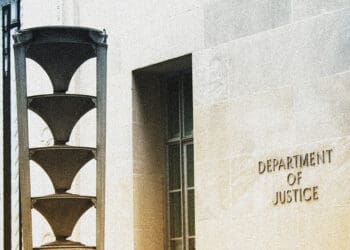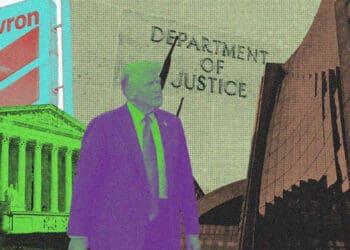A Memo to the Congress
We’re all in agreement that culpable whistleblowers should not be eligible for financial awards. But Dan Hurson argues that legislation already in place has guards against the potential of awarding guilty parties. And the vast majority of whistleblowers have kept their hands clean anyhow. The inclusion of a “co-conspirator” disqualifier would only muddy the waters.
The SEC Correctly Rejected the Total Denial of Awards to “Culpable” Whistleblowers
One cannot deny the basic argument that in general, wrongdoing should not be rewarded, at least in financial terms, in any government program. It is the sentiment that may well drive Rep. Henserling’s proposed restriction. However, the SEC carefully considered these and similar objections at the time the program was created and responded to them in the Final Rule adopting release:
“[W]e do not believe that a per se exclusion for culpable whistleblowers is consistent with Section 21F of the Exchange Act. As commentators noted, the original Federal whistleblower statute — the False Claims Act — was premised on the notion that one effective way to bring about justice is to use a rogue to catch a rogue. This basic law enforcement principle is especially true for sophisticated securities fraud schemes which can be difficult for law enforcement authorities to detect and prosecute without insider information and assistance from participants in the scheme or their co-conspirators. Insiders regularly provide law enforcement authorities with early and invaluable assistance in identifying the scope, participants, victims and ill-gotten gains from these fraudulent schemes. Accordingly, culpable whistleblowers can enhance the Commission’s ability to detect violations of the Federal securities laws, increase the effectiveness and efficiency of the Commission’s investigations and provide important evidence for the Commission’s enforcement actions.” [1]
Based in part on these considerations, the SEC adopted the several reasonable and effective limitations on awards to culpable whistleblowers described above.
The SEC has it right. Most whistleblowers come to the process with “clean hands.” Most have observed or otherwise heard about wrongdoing, some have reported it to superiors and have decided to “do the right thing” and report it to the regulators through the whistleblower program. I have never represented or even spoken to a whistleblower I could objectively have considered to be a “co-conspirator.” Some, including several clients I have represented, had some very limited involvement in the underlying conduct, such as going along with a scheme for a time as a minor participant, refraining for a time from objecting to the conduct (usually for fear of retaliation, such as losing their job or facing demotion or job transfer) or recording at the explicit direction of a superior some misleading or inaccurate information. Almost all had raised questions, concerns or objections to superiors to no avail. In context, these actions are typical, reflect human nature and, upon a full and reasonable analysis of the facts, are justifiable or at least understandable under the circumstances. These individuals should not in any sense be considered “co-conspirators.” They would not be charged as such by any rational government prosecutor or enforcement lawyer. Their actions should not result in the loss or potential loss of the ability to obtain an award.
In that respect, I must comment that until one has “walked in the shoes” of a whistleblower, it can be difficult to appreciate the pressure and anxiety these courageous individuals endure in making the decision to do what most others would avoid — reporting wrongdoing against powerful corporations who hold the whistleblower’s career in their hands or have the ability to destroy it at will. Their livelihood, their family’s well-being and sometimes their personal safety may be at stake. While it may be “cleaner” if they have no involvement in that wrongdoing, their willingness in isolated cases of those who may have some degree of personal exposure by bringing such activity to the authorities speaks to their authenticity and courage and their ultimate value to the government in building a strong case.
The Threat to the Whistleblower Program of a “Co-Conspirator” Award Bar
In drawing the bright line of disqualification for a conviction only, the Dodd-Frank drafters gave a clear signal to whistleblowers: fear not, your involvement (short of a criminal conviction) does not disqualify you. Uncertainty is the key factor here: an individual contemplating coming in with information that may form the basis for an SEC enforcement action wants reasonable assurance that the potential reward is worth the risk. I have had that conversation with nearly all of my clients and others who have sought my counsel and ultimately decided not to become a whistleblower. The possibility of being identified as a whistleblower is troubling enough without adding to the equation the risk, however remote, that one might end up after a successful SEC enforcement action based on their information being denied an award because their own disclosures, in the government’s view, rendered them under the law a “co-conspirator” in the very wrongdoing they sought to expose. I would have to advise such an individual that part of the already substantial risk he or she runs in becoming a whistleblower is that it would not be determined until potentially years later whether these disclosures, which could result in a major case for the SEC, would entitle that whistleblower to any award whatsoever.
The risk of blurring the bright red line which now exists by introducing the concept of disqualification for being considered, post facto, a “co-conspirator,” introduces a high degree of uncertainly into an already highly uncertain process. If the whistleblower can in any respect be judged later to have been a “co-conspirator” in the conduct, however that troublesome and amorphous term is applied in a given set of facts, and thus denied an award entirely, the odds that person will undertake such a precarious process may decrease dramatically.
The Difficulties in Determining Who May be a “Co-Conspirator”
In using the word “co-conspirator” as the key concept in describing the new barrier to becoming a whistleblower, the proposed legislation has focused on one of the most confusing and confounding concepts in the law. Without attempting to get too far into the weeds of conspiracy law, let me pose a simple example of the minefield this requirement would pose for the whistleblower program.
As a former federal prosecutor and defense lawyer, I pay considerable attention to jury instructions. The instructions regarding the elements of conspiracy (these are taken from the 9th Circuit U.S. Court of Appeals; other jurisdictions are similar) require
- an agreement between two or more persons to commit at least one crime as charged in the indictment,
- the defendant became a member of the conspiracy knowing at least one of its objects and intending to help accomplish it and
- one of the members of the conspiracy performed at least one overt act for the purpose of carrying out the conspiracy.
But that’s not all. As for how one becomes a member of the conspiracy, the instruction says the following:
“One becomes a member of a conspiracy by willfully participating in the unlawful plan with the intent to advance or further some object or purpose of the conspiracy, even though the person does not have full knowledge of the details of the conspiracy. Furthermore, one who willfully joins an existing conspiracy is as responsible for it as the originators. On the other hand, one who has no knowledge of a conspiracy, but happens to act in a way which furthers some object or purpose of the conspiracy, does not thereby become a conspirator. Similarly, a person does not become a conspirator merely by associating with one or more persons who are conspirators, nor merely by knowing that a conspiracy exists.”
“An overt act does not itself have to be unlawful. A lawful act may be an element of a conspiracy if it was done for the purpose of carrying out the conspiracy. The government is not required to prove that the defendant personally did one of the overt acts.”
“Each member of the conspiracy is responsible for the actions of the other conspirators performed during the course and in furtherance of the conspiracy. If one member of the conspiracy commits a crime in furtherance of a conspiracy, the other members have also, under the law, committed that crime.” (The Pinkerton charge, derived from the holding in Pinkerton v. United States, 328 U.S. 640 (1946).
These are the instructions a federal jury (laymen, usually not lawyers) receive in every case in which a defendant is charged as a “co-conspirator.” Prosecutors, including SEC enforcement lawyers, often charge a conspiracy to violate a given federal law, including securities fraud. Issues surrounding conspiracies and conspirators have bedeviled the courts, the juries, the parties and the legal profession for centuries.[2] I can predict that introducing this concept as a critical element in determination of who may qualify as a whistleblower could impact the SEC’s program in a myriad of ways. Just a few possible consequences:
- As noted, it will discourage potential whistleblowers (and their lawyers) from making a submission to the SEC in any scenario in which the whistleblower could be considered, rightly or wrongly, to have any potential exposure on any theory as being a “co-conspirator.” Even the most tangential act by the potential whistleblower that might be later construed as furthering the “conspiracy” will have to be considered by the whistleblower and his or her counsel as a potential disqualifier for an award.
- After the case is brought, it will require the Office of the Whistleblower (OWB) to spend additional time and effort in investigating the potential of “co-conspirator” status of the whistleblower before making an award recommendation to the Claims Review Staff (CRS) (as required by Rule 21F-10(b).
- To resolve a potential “co-conspirator” issue, the OWB might be required to take additional testimony from the SEC staff or the whistleblower himself, or other witnesses to or participants in the scheme, in order to make its recommendation to the CRS. Difficult legal and factual judgments may be required.
- For example, in considering potential “co-conspirator” situations, the OWB and CRS would confront a myriad of difficult subjective judgments as to when and if a whistleblower had joined a conspiracy, when and if he had committed an “overt act,” whether minor actions such as making a single false entry, attending a single meeting at which the fraud was discussed or failing to formally report the fraud (such as on a SOX sub-certification) constituted knowing and willful participation in the fraud. The SEC’s “verdict,” which could cost the whistleblower literally millions of dollars, may be one which has historically confounded judges and juries. It will make the award process, now conducted virtually in secret, much more uncertain for the applicants.
- A preliminary determination by the CRS of denial of an award claim by the whistleblower on the grounds of his being found to be a “co-conspirator” would undoubtedly generate an appeal of the denial by the whistleblower through the process set forth in the rules, further delaying the final award decision, which even now requires a lengthy wait. It could also increase the potential for an award denial to be taken to a U.S. Court of Appeals, as provided in the Rules.
- Even after the CRS decides to recommend an award to the Commission, a single SEC Commissioner can request a review before a Final Order is rendered. Presumably, an award decision which in any respect involves an alleged “co-conspirator” issue could trigger such a review, which could involve the Commission as in essence “judge and jury” of the whistleblower in what could become a mini-trial of the underlying SEC case, many of which are quite complex. This could result in another lengthy delay in the award process, as well as divided Commission votes on whether to make an award.
- In cases in which there are no individual respondents, just the corporation (which is frequently the case in SEC enforcement actions), the whistleblower who brought the case to the SEC could end up being found to be a “co-conspirator” with other corporate actors who were never charged, and thus denied an award. The whistleblower, who may have “made” the case, would then become effectively the only individual to suffer any penalty in the enforcement action. This absurd result, which might end up being widely reported, could significantly discourage future whistleblowers and thus undermine the entire whistleblower program.
Conclusion
The addition of a “co-conspirator” bar to obtaining an SEC whistleblower award opens a Pandora’s Box of issues that could seriously impact what has to date been a very successful program. It could materially decrease the heretofore significant assistance courageous whistleblowers have provided the SEC and DOJ in their efforts to enforce the securities laws. Whatever appeal it may have on its face, decades of experience with the difficulties posed by the complex law of conspiracy suggest that its introduction into the whistleblower award process could do significant damage to the SEC whistleblower program. It should be decisively rejected by the Congress.
_____________________
[1] SEC Final rule, release No. 34-64545, File No. S-7-33-10. Fed. Register, Vol 78, No. 113, p. 34350, June 13, 2011.
[2] “A doctrine so vague in its outlines and uncertain in its fundamental nature as criminal conspiracy lends no strength or glory to the law; it is a veritable quicksand of shifting opinion and ill-considered thought.” Sayre, Criminal Conspiracy, 35 Harvard Law Review 393 (1922) (cited in Doyle, Federal Conspiracy Law: A Brief Overview, Congressional Research Service, January 20, 2016).



 Daniel J. Hurson is a principal at The Law Offices of Daniel J. Hurson in Washington, D.C. and Annapolis, MD. He has been a trial lawyer and litigator for more than four decades, with substantial experience in white-collar criminal, securities fraud and internal investigations. He served as law clerk to the Hon. Harrison L. Winter of the United States Court of Appeals for the Fourth Circuit. In its recent opinion in the case of former Enron officer Jeffrey Skilling, the U.S. Supreme Court, in defining the “honest services” theory of mail fraud, cited a law review article on the subject written by Mr. Hurson.
Mr. Hurson has tried cases for the U.S. government both as an Assistant U.S. Attorney in Maryland and later as Assistant Chief Litigation Counsel for the Enforcement Division of the Securities and Exchange Commission. He received the Outstanding Service Award from the Attorney General of the United States for his work as a federal prosecutor. He has prosecuted and defended white-collar criminal cases and political corruption cases, including the prosecution of a sitting governor of Maryland. He has also litigated civil rights, trademark, whistleblower, broker-dealer fraud, insider trading and legal and accounting malpractice cases.
Mr. Hurson has also undertaken the representation of SEC whistleblowers acting under the provisions of the Dodd-Frank Act. He has now submitted a number of these cases to the Enforcement Division of the SEC, which has undertaken multiple investigations now in progress based on information provided by Mr. Hurson’s clients. Mr. Hurson has written extensively on whistleblower issues. His article titled “10 Rules for Becoming a Successful SEC Whistleblower” is widely read on the Internet.
Mr. Hurson represents individuals and corporations before the Enforcement Division of the Securities and Exchange Commission, including FCPA, options backdating, insider trading and financial and accounting fraud cases. He has represented several corporations in bankruptcy-related actions against third-party professionals such as former lawyers and accountants. He has advised Special Committees of corporate boards in evaluating potential third-party litigation arising out of an internal investigation. He has conducted internal investigations for corporations relating to employee allegations and securities issues. He represents individual officers and directors in internal investigations and before the SEC.
Mr. Hurson has taught and lectured on trial practice and securities law at several national law schools and for the ABA and the District of Columbia Bar. He has served as a judge at Georgetown Law School’s white-collar crime national moot court competition. He has counseled first year law students at the employment forum at the George Washington University Law School.
Mr. Hurson has appeared on the PBS Nightly Business Report, the Canadian Business Network, Chinese and Saudi television networks, and has been quoted in Bloomberg’s BusinessWeek, the New York Times and the Wall Street Journal, among other publications. Mr. Hurson is a past Chairman of the Steering Committee of the District of Columbia Bar's Committee on Corporation, Finance and Securities Law, where his section won the Best Section Award during his tenure as Chair. He is a cum laude graduate of Georgetown University, where he was the College Student Body President. He graduated from Harvard Law School, where he was the winner of the Ames Moot Court Competition.
Daniel J. Hurson is a principal at The Law Offices of Daniel J. Hurson in Washington, D.C. and Annapolis, MD. He has been a trial lawyer and litigator for more than four decades, with substantial experience in white-collar criminal, securities fraud and internal investigations. He served as law clerk to the Hon. Harrison L. Winter of the United States Court of Appeals for the Fourth Circuit. In its recent opinion in the case of former Enron officer Jeffrey Skilling, the U.S. Supreme Court, in defining the “honest services” theory of mail fraud, cited a law review article on the subject written by Mr. Hurson.
Mr. Hurson has tried cases for the U.S. government both as an Assistant U.S. Attorney in Maryland and later as Assistant Chief Litigation Counsel for the Enforcement Division of the Securities and Exchange Commission. He received the Outstanding Service Award from the Attorney General of the United States for his work as a federal prosecutor. He has prosecuted and defended white-collar criminal cases and political corruption cases, including the prosecution of a sitting governor of Maryland. He has also litigated civil rights, trademark, whistleblower, broker-dealer fraud, insider trading and legal and accounting malpractice cases.
Mr. Hurson has also undertaken the representation of SEC whistleblowers acting under the provisions of the Dodd-Frank Act. He has now submitted a number of these cases to the Enforcement Division of the SEC, which has undertaken multiple investigations now in progress based on information provided by Mr. Hurson’s clients. Mr. Hurson has written extensively on whistleblower issues. His article titled “10 Rules for Becoming a Successful SEC Whistleblower” is widely read on the Internet.
Mr. Hurson represents individuals and corporations before the Enforcement Division of the Securities and Exchange Commission, including FCPA, options backdating, insider trading and financial and accounting fraud cases. He has represented several corporations in bankruptcy-related actions against third-party professionals such as former lawyers and accountants. He has advised Special Committees of corporate boards in evaluating potential third-party litigation arising out of an internal investigation. He has conducted internal investigations for corporations relating to employee allegations and securities issues. He represents individual officers and directors in internal investigations and before the SEC.
Mr. Hurson has taught and lectured on trial practice and securities law at several national law schools and for the ABA and the District of Columbia Bar. He has served as a judge at Georgetown Law School’s white-collar crime national moot court competition. He has counseled first year law students at the employment forum at the George Washington University Law School.
Mr. Hurson has appeared on the PBS Nightly Business Report, the Canadian Business Network, Chinese and Saudi television networks, and has been quoted in Bloomberg’s BusinessWeek, the New York Times and the Wall Street Journal, among other publications. Mr. Hurson is a past Chairman of the Steering Committee of the District of Columbia Bar's Committee on Corporation, Finance and Securities Law, where his section won the Best Section Award during his tenure as Chair. He is a cum laude graduate of Georgetown University, where he was the College Student Body President. He graduated from Harvard Law School, where he was the winner of the Ames Moot Court Competition. 







